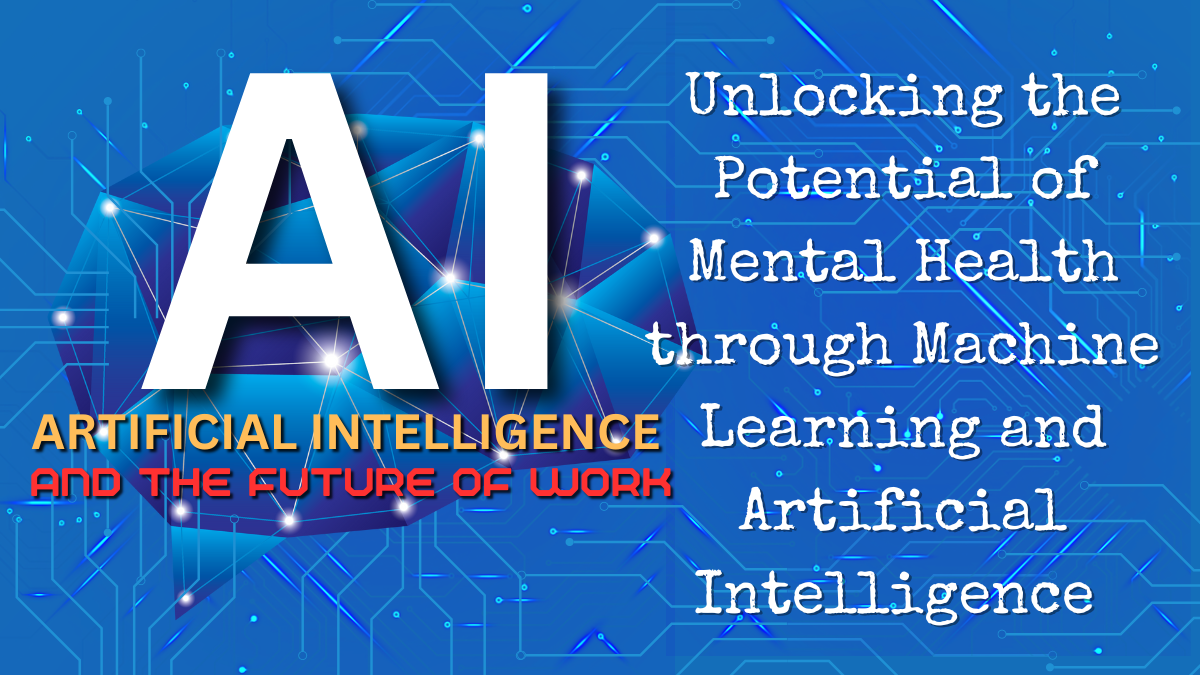Empowering: Unlocking the Potential of Mental Health through Machine Learning and Artificial Intelligence
Introduction: In today’s fast-paced world, the importance of mental health cannot be overstated. Mental health issues affect millions of people globally, leading to a significant impact on their well-being and overall quality of life.
However, the integration of technology, particularly machine learning and artificial intelligence (AI), is revolutionizing the field of mental health care. This article delves into the ways in which machine learning and AI are transforming mental health, offering innovative solutions and insights.
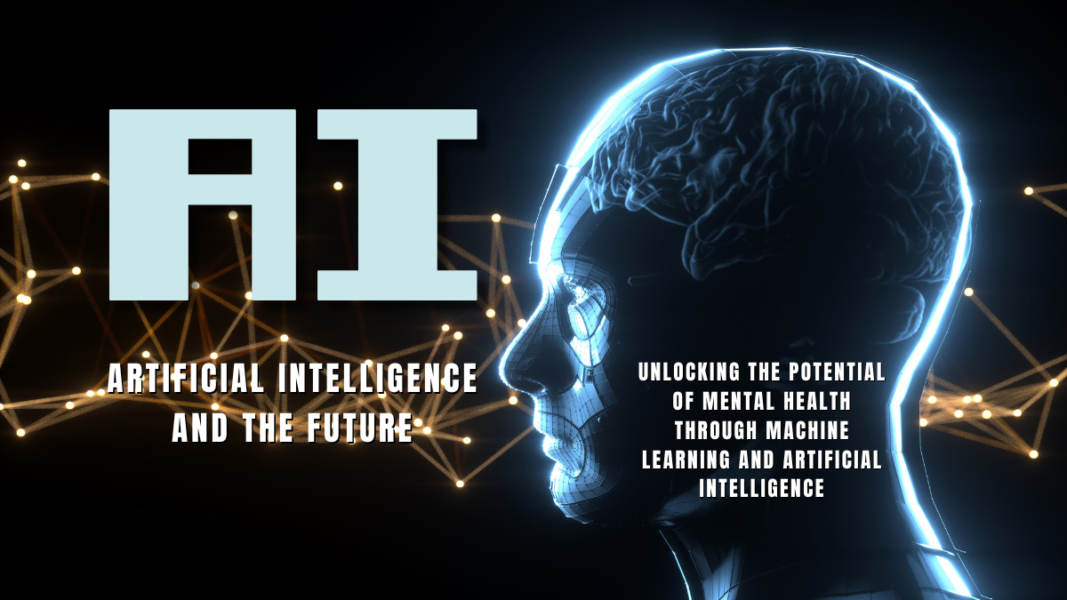
The Intersection of Mental Health and Technology
Leveraging Data for Early Detection
One of the most significant breakthroughs in the field of mental health is the utilization of data-driven insights. Machine learning algorithms can analyze vast datasets, including social media posts, electronic health records, and wearable device data, to identify early signs of mental health issues. This enables healthcare providers to intervene proactively.
Personalized Treatment Plans
AI-driven algorithms can create personalized treatment plans based on an individual’s unique needs and history. This tailored approach ensures that patients receive the most effective treatments, leading to better outcomes and improved patient satisfaction.
Predictive Analytics for Crisis Intervention
Predictive analytics powered by AI can anticipate mental health crises by analyzing behavioral patterns and triggers. This allows for timely interventions and prevents potential emergencies.
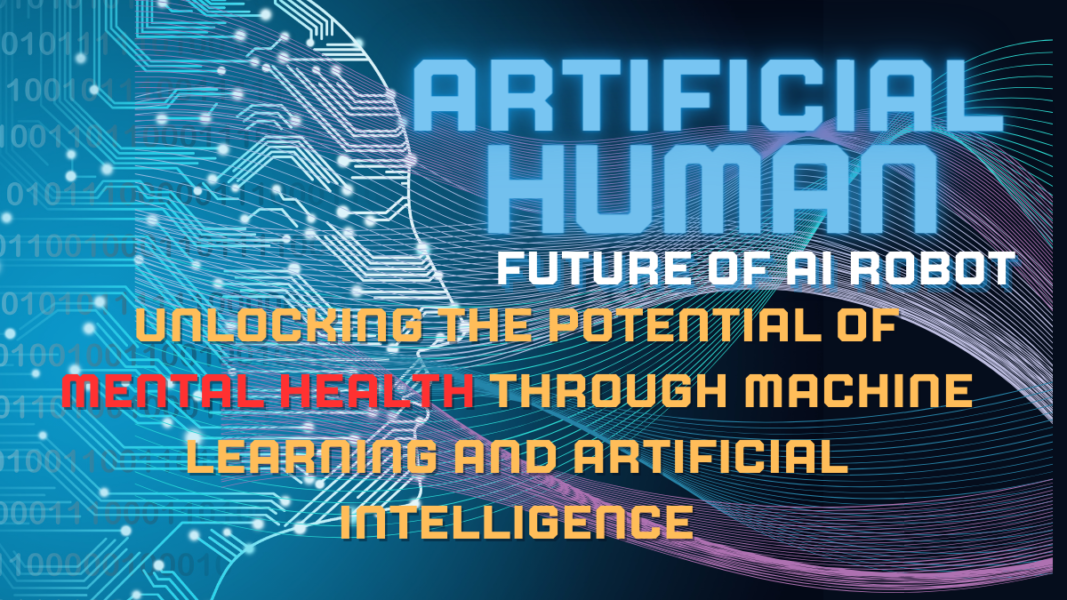
Telehealth and Virtual Therapists
Accessible Mental Health Support
Machine learning and AI have made mental health support more accessible through telehealth services and virtual therapists. This reduces the barriers to seeking help, particularly for individuals in remote areas or with limited mobility.
Chatbots and Emotional Support
Chatbots equipped with AI can provide immediate emotional support and guidance to individuals experiencing distress. These virtual assistants are available 24/7, offering a lifeline to those in need.
Ethical Considerations in AI and Mental Health
Privacy and Data Security
The collection of sensitive mental health data raises ethical concerns regarding privacy and data security. It is crucial to establish robust safeguards to protect individuals’ confidential information.
Bias in Algorithms
Machine learning algorithms may inadvertently perpetuate biases present in the data they are trained on. Ensuring fairness and equity in AI-driven mental health solutions is a pressing concern.
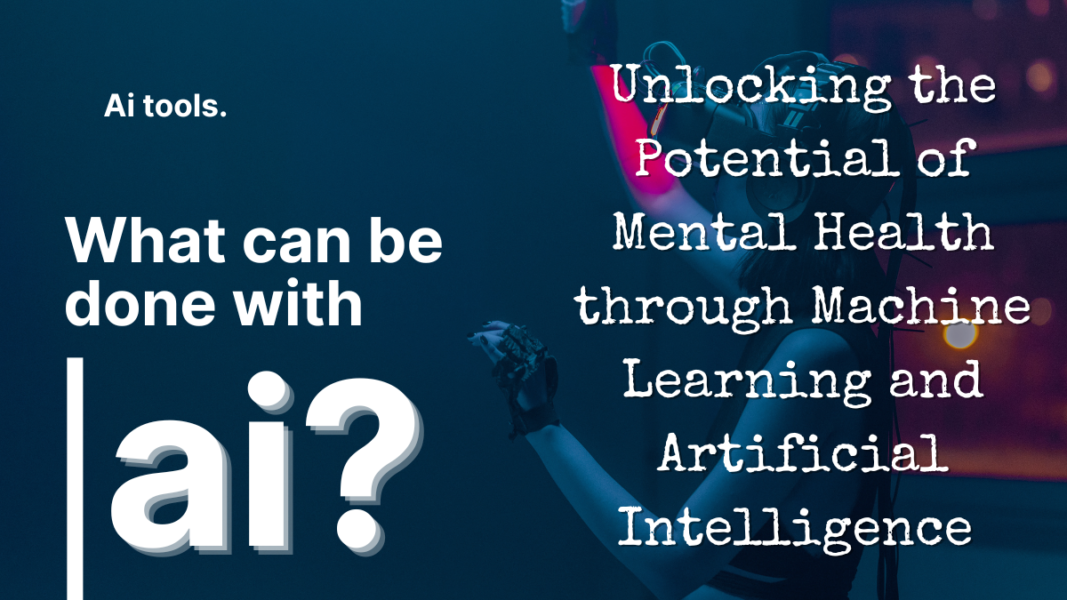
Future Prospects and Challenges
Enhanced Diagnostics
The future holds the promise of even more accurate diagnostic tools powered by AI, enabling early detection of mental health issues with unprecedented precision.
Bridging Gaps in Access
Addressing disparities in mental health care access remains a challenge. AI has the potential to bridge these gaps, but efforts are needed to ensure equitable distribution of resources.
Mental health • Machine learning • Artificial intelligence
Mental health, machine learning, and artificial intelligence (AI) are all rapidly evolving fields with the potential to revolutionize the way we understand and treat mental health conditions.
- Mental health is the state of our emotional, psychological, and social well-being. It affects how we think, feel, and act. Good mental health allows us to cope with the ups and downs of life and live a fulfilling life.
- Machine learning is a type of artificial intelligence that allows computers to learn without being explicitly programmed. Machine learning algorithms can be used to analyze large amounts of data and identify patterns that would be difficult or impossible for humans to detect.
- Artificial intelligence is a branch of computer science that deals with the creation of intelligent agents, which are systems that can reason, learn, and act autonomously. AI has the potential to automate many tasks that are currently performed by humans, including the diagnosis and treatment of mental health conditions.
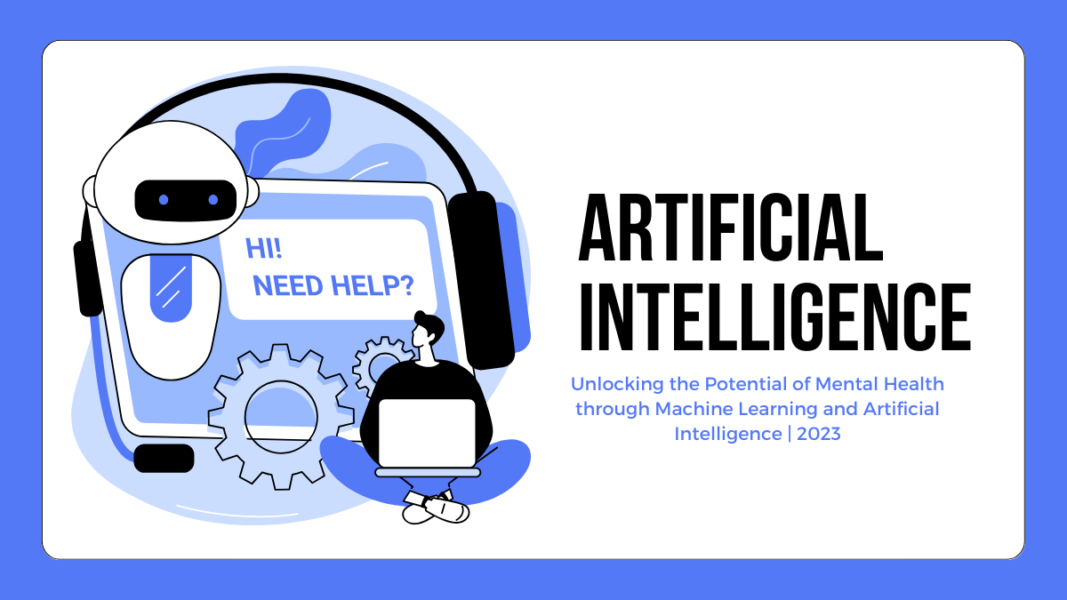
There are a number of ways that machine learning and AI can be used to improve mental health.
For example, machine learning algorithms can be used to:
- Identify and diagnose mental health conditions. Machine learning algorithms can be trained on large datasets of patient data to identify patterns that are associated with different mental health conditions. This can help to improve the accuracy of diagnosis and make it easier to identify people who need treatment.
- Develop new treatments for mental health conditions. Machine learning algorithms can be used to analyze the data from clinical trials to identify new treatments that are more effective than existing treatments.
- Personalize treatment. Machine learning algorithms can be used to personalize treatment for each individual patient. This can be done by taking into account the patient’s individual characteristics, such as their symptoms, medical history, and lifestyle.
- Provide support and therapy. There are now a number of AI-powered chatbots and virtual assistants that can provide support and therapy to people with mental health conditions. These tools can help people to manage their symptoms, connect with others, and learn coping skills.
The use of machine learning and AI in mental health is still in its early stages, but there is a lot of potential for this technology to improve the lives of people with mental health conditions. As the technology continues to develop, we can expect to see even more innovative and effective ways to use machine learning and AI to improve mental health.
Conclusion
In the intersection of mental health and technology, machine learning and artificial intelligence are driving remarkable advancements. From early detection to personalized treatment plans and crisis intervention, these technologies are revolutionizing mental health care. However, ethical considerations must guide their development to protect individuals’ privacy and prevent biases. The future holds great promise for AI-driven mental health solutions, but challenges must be met with diligence and care.
FAQs
How does AI detect early signs of mental health issues?
AI analyzes various data sources, such as social media posts and health records, to identify behavioral patterns indicative of mental health concerns.
Are virtual therapists as effective as in-person therapy?
Virtual therapists powered by AI can be highly effective, offering accessibility and immediate support. However, the effectiveness may vary depending on individual preferences and needs.
What are the primary ethical concerns in AI-driven mental health care?
Key ethical concerns include privacy and data security, as well as the potential for AI algorithms to perpetuate biases present in the data they are trained on.
How can AI bridge gaps in access to mental health care?
AI can provide remote and accessible mental health support, reducing geographical and logistical barriers to care.
What does the future hold for AI in mental health?
The future promises more accurate diagnostics and increased access to mental health care, but efforts are needed to ensure equitable distribution and ethical use of AI technologies.
https://www.kintsugihealth.com/blog/ai-for-mental-health-improving-access-to-care
Sources
refreshscience.com/machine-learning-backend/
www.clippingpath.in/blog/ai-in-photography/
www.youthmint.com/fill-in-the-blanks-to-describe-artificial-intelligence/

